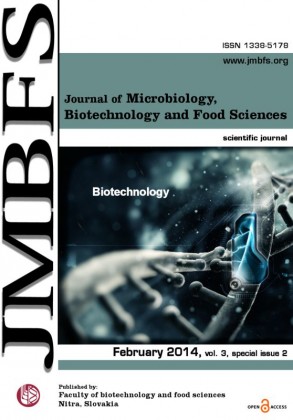LEYDIG CELLS AS A MODEL OF MALE REPRODUCTIVE SYSTEM
Keywords:
Infertility, testosterone, Leydig cells, steroidogenesisAbstract
During the past decades, a large anount of information concerning the infertility, which can be caused by malfunction at the level of sperm or production of testosterone was published. It is about androgene which is from 95 percent synthetized in testes. It plays significant role in development of individual´s sexual signs and is also the starter of spermatogenesis. The main mechanism ensuring the production of this important hormone is the process determined as a steroidogenesis. This process runs in cells located in testes and are known as Leydig cells (LC). Several types of LC are classified as for example fetal, adult, stem, progenitor or immature cells. There are mutual differences, but their common feature is a production of androgenes. Mitochondria and endoplasmic reticulum have irreplaceable position within LC and they, together with relevant enzymes and cascades of reactions, ensure the metamorphosis of cholesterol up to testosterone. With rising age the activity of steroidogenesis declines what is, however, natural. But there are many cases when this process in cells of developing individual is impaired by external or internal factors. Their identification and consequent elimination is for sufficient production of testosterone very important. This review contains on overview of Leydig cell biology and testosterone synthesis.Downloads
Download data is not yet available.
Downloads
Published
2014-02-01
How to Cite
Jambor, T., Tvrdá, E., LukáÄová, J., & LukáÄ, N. (2014). LEYDIG CELLS AS A MODEL OF MALE REPRODUCTIVE SYSTEM. Journal of Microbiology, Biotechnology and Food Sciences, 3(special issue 2 (Biotechnology), 93–96. Retrieved from https://office2.jmbfs.org/index.php/JMBFS/article/view/7631
Issue
Section
Biotechnology
License
Copyright (c) 2014 Tomáš Jambor, Eva Tvrdá, Jana LukáÄová, Norbert LukáÄ

This work is licensed under a Creative Commons Attribution 4.0 International License.
All papers published in the Journal of Microbiology, Biotechnology and Food Sciences are published under a CC-BY licence (CC-BY 4.0). Published materials can be shared (copy and redistribute the material in any medium or format) and adapted (remix, transform, and build upon the material for any purpose, even commercially) with specifying the author(s).

